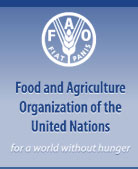The United Nations Food and Agriculture Organization High Level Conference on Food Security focused on solutions to fight global hunger and increase agricultural development this week, rather than place restrictions on biofuels production.
The final declaration adopted by 180 countries calls for further study on the issue, an approach which world biofuels producers called “thoughtful.”
 In a statement, leaders from the Canadian Renewable Fuels Association (CRFA), the European Bioethanol Fuel Association (eBio), and the Renewable Fuels Association said they the proposal to undertake further study of biofuels in agriculture. “We are confident it will underscore the valuable contribution biofuels can make to ease the energy and agriculture challenges confronting all nations,” they said.
In a statement, leaders from the Canadian Renewable Fuels Association (CRFA), the European Bioethanol Fuel Association (eBio), and the Renewable Fuels Association said they the proposal to undertake further study of biofuels in agriculture. “We are confident it will underscore the valuable contribution biofuels can make to ease the energy and agriculture challenges confronting all nations,” they said.
Agriculture Secretary Ed Schafer also welcomed the declaration’s recognition of the important issues related to the challenges and opportunities of biofuels. “The United States is firmly committed to the sustainable production and use of biofuels, both domestically and globally,” he said in a statement.
During a press conference with reporters from Rome, Schafer said that during his time there, he has “become more confident that our ethanol policy of energy security, of better environmental factors, and a reduction in the cost of petroleum use in our country is the right policy direction. And I certainly am going to urge continuing along the way we’re going.”
The real focus of the summit was on getting countries to come up with more money to meet urgent humanitarian needs for food and to help countries achieve continuing food security through investment in agriculture and research. Schafer said the United States will continue to provide the majority of food aid globally, projecting to spend nearly $5 billion on programs to combat hunger over the next two years. By contrast, oil-rich countries like Venezuela and Kuwait have only pledged to spend $100 million a year.

